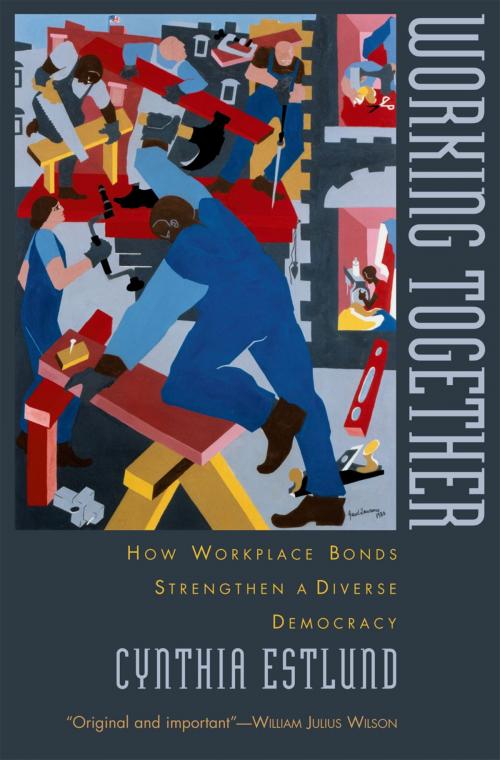Working Together
How Workplace Bonds Strengthen a Diverse Democracy
Nonfiction, Reference & Language, Law, Labour & Employment, Social & Cultural Studies, Political Science, Politics, Labour & Industrial Relations, Business & Finance, Human Resources & Personnel Management| Author: | Cynthia Estlund | ISBN: | 9780190289188 |
| Publisher: | Oxford University Press | Publication: | October 2, 2003 |
| Imprint: | Oxford University Press | Language: | English |
| Author: | Cynthia Estlund |
| ISBN: | 9780190289188 |
| Publisher: | Oxford University Press |
| Publication: | October 2, 2003 |
| Imprint: | Oxford University Press |
| Language: | English |
The typical workplace is a hotbed of human relationships--of friendships, conflicts, feuds, alliances, partnerships, coexistence and cooperation. Here, problems are solved, progress is made, and rifts are mended because they need to be - because the work has to get done. And it has to get done among increasingly diverse groups of co-workers. At a time when communal ties in American society are increasingly frayed and segregation persists, the workplace is more than ever the site where Americans from different ethnic, religious, and racial backgrounds meet and forge serviceable and sometimes lasting bonds. What do these highly structured workplace relationships mean for a society still divided by gender and race? Structure and rules are, in fact, central to the answer. Workplace interactions are constrained by economic power and necessity, and often by legal regulation. They exist far from the civic ideal of free and equal citizens voluntarily associating for shared ends. Yet it is the very involuntariness of these interactions that helps to make the often-troubled project of racial integration comparatively successful at work. People can be forced to get along-not without friction, but often with surprising success. This highly original exploration of the paradoxical nature--and the paramount importance--of workplace bonds concludes with concrete suggestions for how law can further realize the democratic possibilities of working together. In linking workplace integration and connectedness beyond work, Estlund suggests a novel and promising strategy for addressing the most profound challenges facing American society.
The typical workplace is a hotbed of human relationships--of friendships, conflicts, feuds, alliances, partnerships, coexistence and cooperation. Here, problems are solved, progress is made, and rifts are mended because they need to be - because the work has to get done. And it has to get done among increasingly diverse groups of co-workers. At a time when communal ties in American society are increasingly frayed and segregation persists, the workplace is more than ever the site where Americans from different ethnic, religious, and racial backgrounds meet and forge serviceable and sometimes lasting bonds. What do these highly structured workplace relationships mean for a society still divided by gender and race? Structure and rules are, in fact, central to the answer. Workplace interactions are constrained by economic power and necessity, and often by legal regulation. They exist far from the civic ideal of free and equal citizens voluntarily associating for shared ends. Yet it is the very involuntariness of these interactions that helps to make the often-troubled project of racial integration comparatively successful at work. People can be forced to get along-not without friction, but often with surprising success. This highly original exploration of the paradoxical nature--and the paramount importance--of workplace bonds concludes with concrete suggestions for how law can further realize the democratic possibilities of working together. In linking workplace integration and connectedness beyond work, Estlund suggests a novel and promising strategy for addressing the most profound challenges facing American society.















